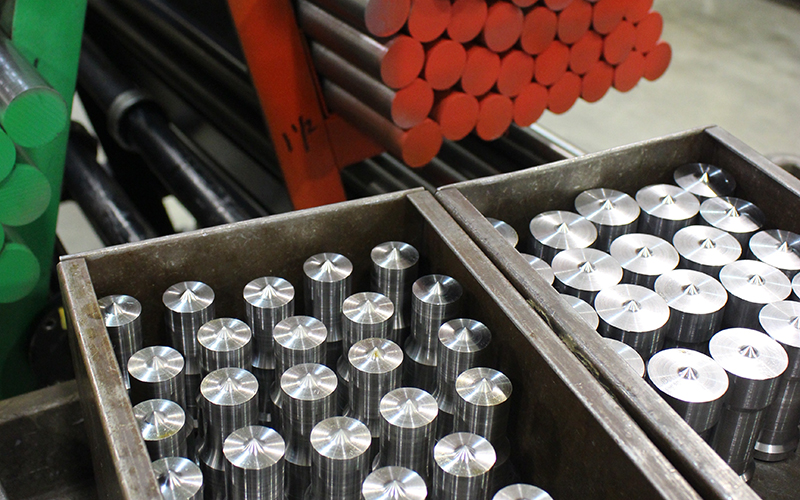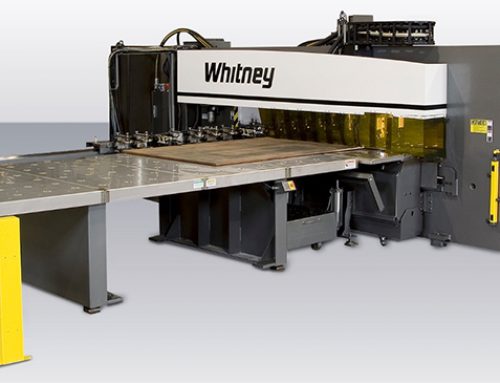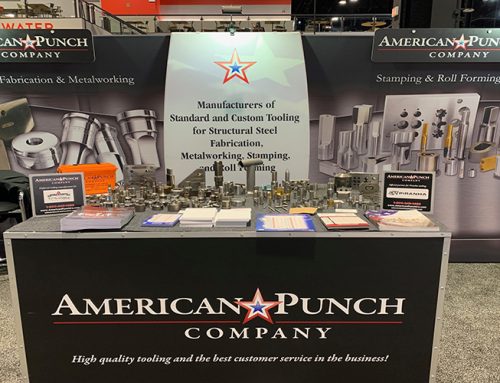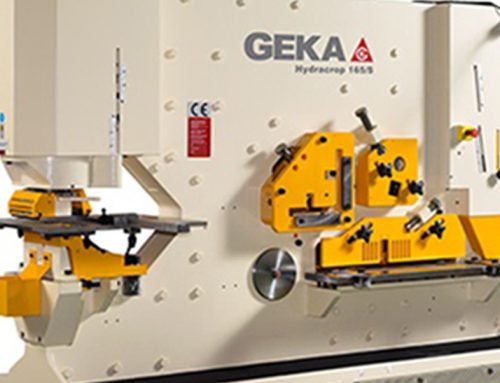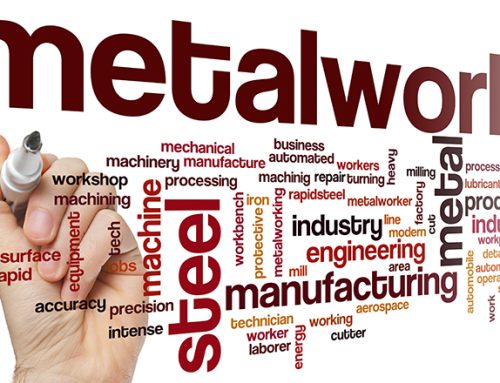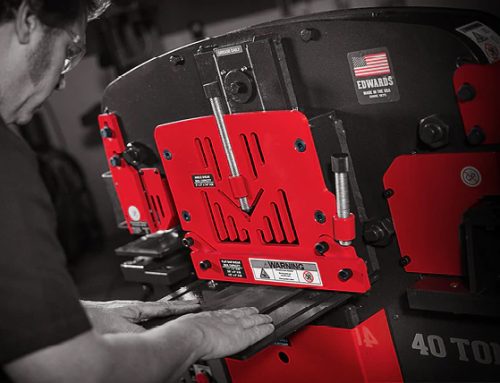Ironworker Punches & Dies: A Material Difference
At American Punch, we are often asked about the material we use to make our ironworker punches and dies and if our tooling is through-hardened or just case-hardened.
Most ironworker punches and dies are designed to punch thicker structural steel over ¼” and up to 1-1/2” thick. To punch the steel cold, we use a proprietary blend “shock-resistant” tool steel, in our case an oil-hardened, shock-resistant tool steel.
This material is well-suited for cold work applications that require a high level of impact toughness. The grade is characterized by high toughness and relatively high hardness. Our proprietary blend has the following chemical analysis:
- Carbon – 0.60
- Silicon – 1.90
- Manganese – 0.90
- Chromium – 0.18
- Vanadium – 0.28
- Molybdenum – 1.28
Each of these elements bring something different to the abilities of the material. Early on, the material was known as a silicon/manganese tool steel. It still is to a point, because these two elements are essential when the material is:
- First poured into ingots
- Then rolled into bars
- Heat treated after it has been made into a punch or die
These elements allow for a better mix, or a deeper hardness, throughout the material after heat treating.
We harden our parts in a vacuum oil quench furnace. This material has what is called an austenitizing temperature, with the high temperature being around 1650° F. At that point, the elements start to mix and form carbides. The parts are held at this temperature for a period and then quenched in oil, which causes the carbides to freeze throughout the piece.
After the quench, it is put into another furnace, called a draw (or tempering) furnace, where the temperature is about 400° F, to relax the carbides. Without this crucial step, the material would be extremely brittle.
This steel is great for ironworker punches and dies for many reasons:
- Machinability
- Stability in heat treat
- High impact
It also has a relatively low cost per pound compared to its outstanding characteristics and benefits. Furthermore, the material can take a lot of abuse and misuse and continue to do the job.
But that doesn’t mean you should abuse your tooling. In fact, there’s a case to be made for taking good care of your punches and dies. Our Punch-Lube is at the top of the list when it comes to proper punch and die maintenance. Punch-Lube can help:
- Reduce friction
- Lubricate the tool
- Remove heat
Importantly, it also helps prolong tool life, reducing scoring and galling.
Another Punch-Lube benefit is that it allows you to punch and stamp more easily, with less scoring and galling of both ferrous and non-ferrous metals. It also makes punching smoother for heavier materials like stainless and high-carbon steel.
From the material we use to create your tooling to the material we provide to help take care of your punches and dies, American Punch has you covered. Contact us now for the high-quality ironworker tooling you need.

